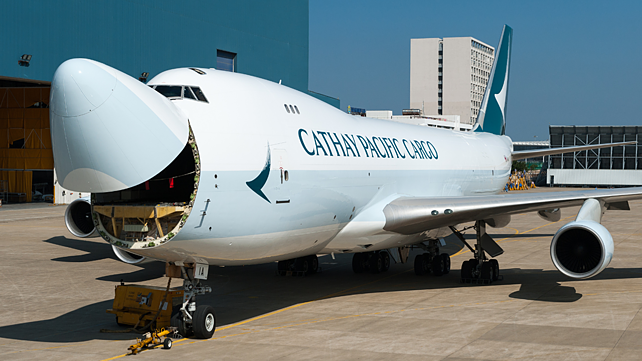
To help its customers monitor shipments in near real-time through the airport-to-airport leg of the air-cargo journey, Cathay Pacific Cargo (CAC) has introduced Ultra Track to its network.
With a phased introduction at 29 ports across the globe, the multi-dimensional tracking product will use the Descartes Core Bluetooth Low Energy (BLE) network, tags and readers, and these data-loggers and transmitters offer visibility to its customers.
According to CPC, this is the first IoT (internet of things) application of the company that enables remote connection to shipments.
The investment reflects the company's strategic ambition to offer better products and services to customers in tandem with the commitment, led by IATA, to bring greater digitisation and transparency to the air cargo industry and continuously improve processes using data-driven initiatives.
Ultra Track is suitable for vulnerable shipments. The loggers record and transmit data to Bluetooth readers in the cargo terminal and on the airside ramp area. Data includes GPS location and temperature – and depending on the type of shipment, this can be extended to include light, humidity, and vibration, which is essential for sensitive specialist cargo such as stepper machines, the printing presses for microchips.
Frosti Lau, Cathay Pacific General Manager - Cargo Service Delivery, said if something happens, like a temperature excursion, the OCC can investigate and implement the right actions to put things right. Therefore, Ultra Track is both a damage-prevention and service-recovery process in one.
The data from the inflight segment of the journey collated from the flight will be transmitted as soon as the Bluetooth device comes into contact with a reader on arrival, and Ultra Track will show the aircraft's progress using data from Flightradar24.
In addition, the system introduces an additional level of visibility for cargo attributes along the shipment journey, aligned with but in addition to existing IATA Cargo iQ milestone tracking and shipment control.
Lau said, 'As the aviation industry starts to recover, we want to ensure that our customers' experience is enhanced through greater use of digital technology and industry engagement with IATA and Cargo iQ. We want to take the lead on the industry's technological development and use the best technologies to keep abreast of customer needs and serve them better in the years to come.'